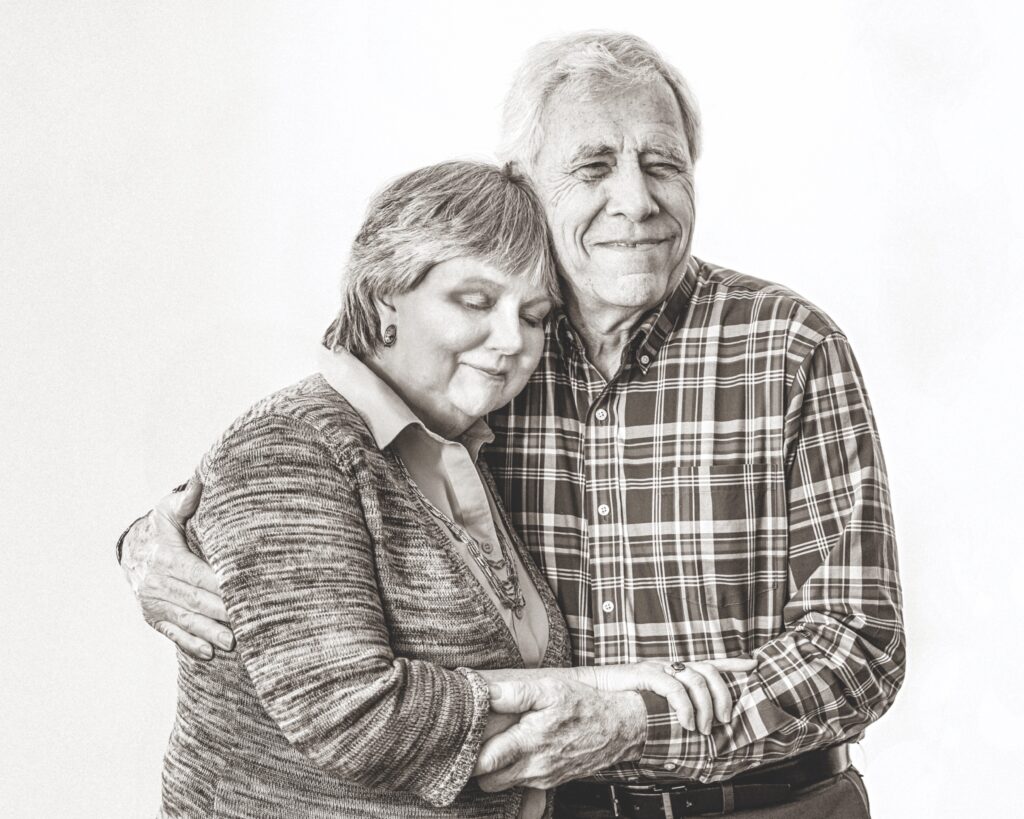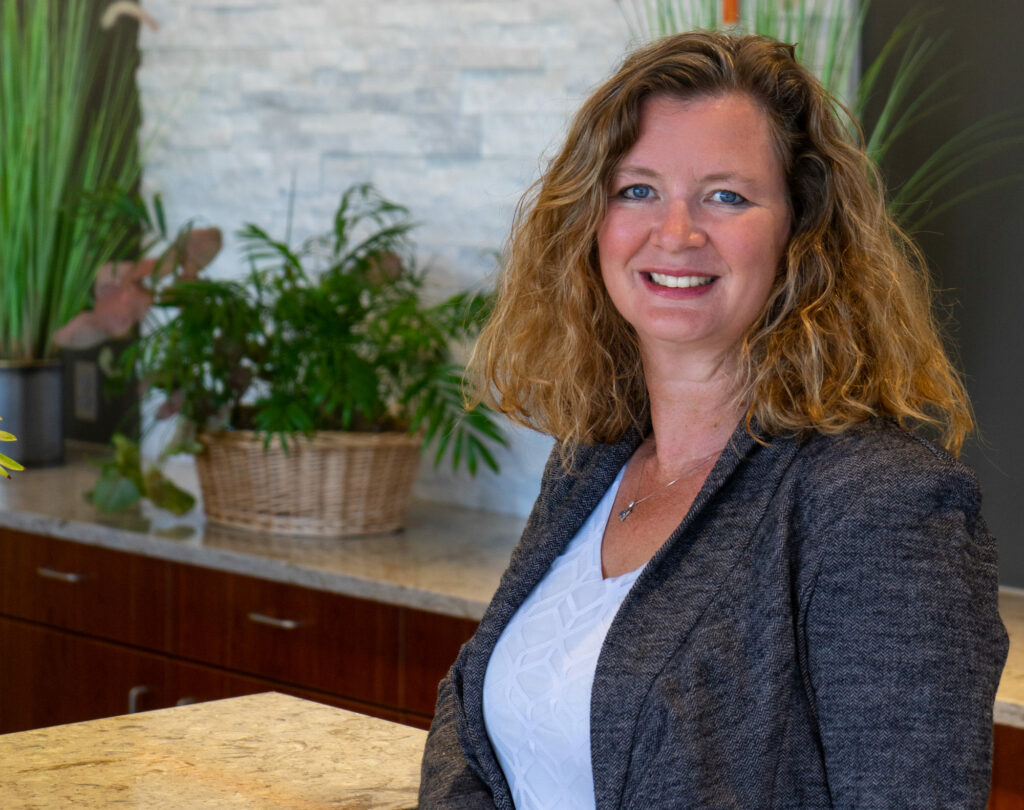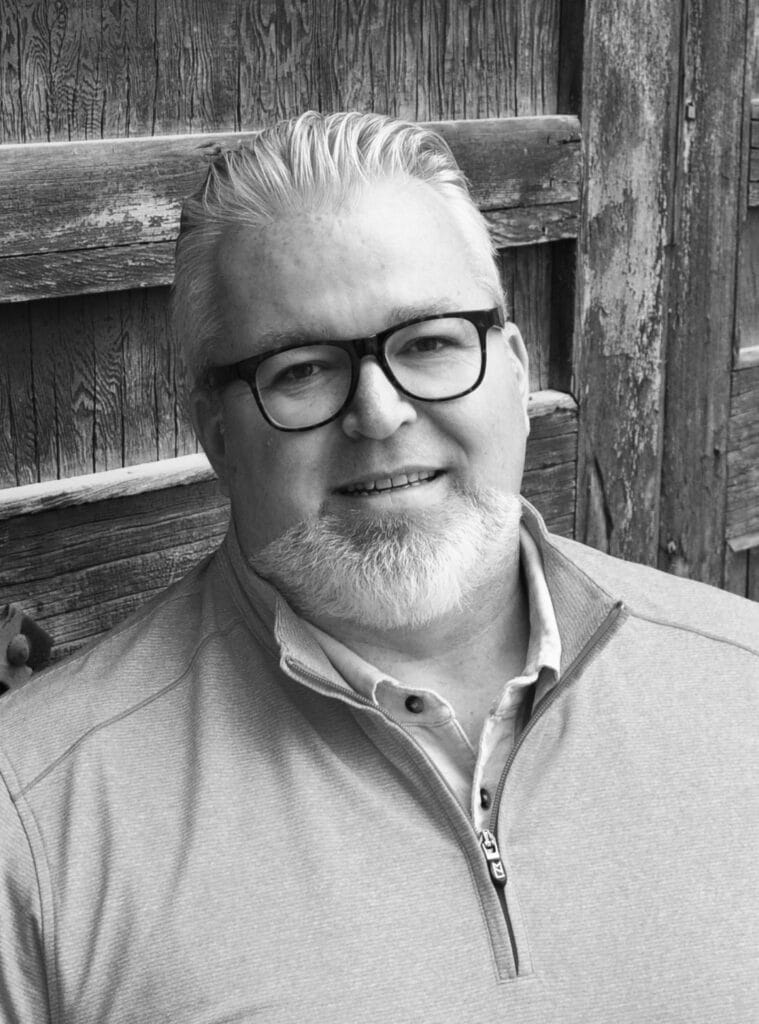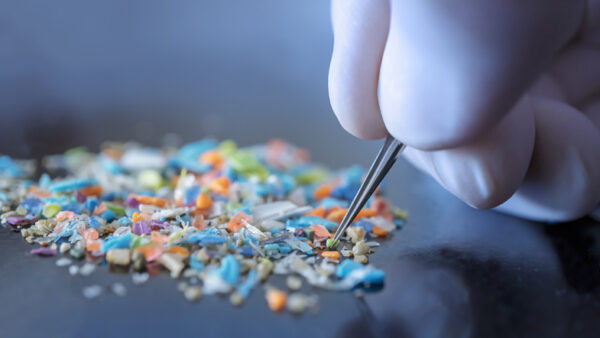As Joe Funk enters the world of retirement, the seed industry fondly remembers his days in the sun.
Thirty years ago, he never would have imagined the path life would take. A former weekend DJ, Joe Funk would eventually pave a path for professionals in the seed industry that’s still trod today.
From breaking news, to covering issues in unparalleled detail, he embodied the seed industry and all its facets. Joe was a staple at every major meeting, press event and facility visit. The multi-billion-dollar industry welcomed him with open arms, and he passed that family-feeling to every interview and introduction he had.
That’s the man, the myth and even the legend: Joe Funk. And today he celebrates his three decades of achievement in retirement with his wife and family.
Early Career
A man of many hats — he’s been a seed seller, USDA employee, freelance journalist, stay-at-home dad, a realtor, in addition to weekend DJ.
However, most in the seed industry know him as a journalist, and particularly, a journalist who used interviews, research and industry know-how to craft a completely unbiased story. Joe didn’t drop the ball there either, he would frequently follow up with subjects, after the story was done.
But just like every legend, Joe had a humble start that allowed him to grow into the journalist he is today.
“Joe was born in central Illinois and raised on a grain and dairy farm,” says his wife, Donna Funk. “He was in charge of milking cows until he went away to college.”

Joe was the first member of his family to go to college — he attended the University of Illinois and graduated in 1966 with a degree in agronomy.
After graduation, Joe’s employment spanned vastly different specialties in agriculture. He worked for the USDA in the Stabilization and Conservation Service for about seven years before shifting to work as a farm manager where he supervised farmers who were working for absentee landowners. In the early 80s, after a lot of travel for his farm management job, he decided to switch careers again.
“He was traveling a lot, but Joe didn’t want to keep traveling because we were getting ready to start a family,” Donna says. “At that time, he took a job with a soybean seed company to sell soybean seeds.”
And while Joe is able to wear many hats, Donna notes that selling wasn’t his area of expertise.
“After a couple of years, it turns out that Joe isn’t a great salesman,” she jokes. “He’s much better at many other things. By that time, we had a daughter, and he was traveling so much again. His commitment really became wanting to be there for the kids.”
At that point, Joe decided to return home to stay with the kids. It was here, staying at home with the kids, where Joe’s writing career blossomed in earnest.
An Early Writing Career
While Joe didn’t study news writing per se, his early employment allowed him to dip his pen in the journalism ink.
“When Joe worked for the USDA, he had dabbled in writing,” Donna says. “He wrote a few newspaper columns, and then he started doing desktop publishing himself — imagine that, in the 80s, without the technology we have today. He had started developing his writing skills a few years prior, and what got him really into writing was a meeting a publisher at Toastmasters.
“It came up that Joe was a writer, and had a bit of a publishing background,” Donna says. “But that was how he got started — he had a trial writing some pieces, before he finally branched out into his most known feature: product reviews.”
For most issues, Joe would write somewhere between 10 to 15 product reviews, outlining new products ranging from seed products to production products coming out in the industry.
Once he became editor of Seed Today, his area of expertise expanded tenfold.
“Joe did a lot of site visits for businesses,” Donna says. “He realized after a few years, it might be beneficial to start adding an international scope to the magazine. He started making one international trip a year that featured a foreign seed operation.”
“Joe has worked hard, and it’s been noticed.”Shawn Brook
The first trip he ever took? Argentina.
“He loved it,” Donna says. “He came home from those trips so stoked up about what was happening in the seed industry and what great potential there was, and what a great industry it was.”
In particular, Joe always loved the industry because of its family atmosphere.
“In spite of the competition, all the people involved in it are very down to earth,” Donna said. “They’re service- and family-oriented, and he loved the work he did.”
An Industry Point of View
Not only did Joe love the industry and all the people in it, but Joe became a person known in the industry, a beloved one at that.

“I started coming to the ASTA show in Chicago in the 2000s,” says Amanda Patin, key account manager of seed at SGS North America. “Joe has always been there — I don’t even have a recollection of actually meeting Joe. He was one of those people you met, and it felt like you already knew him.”
Others saw Joe as a giant in the industry, though Joe would be too humble to accept that title.
“Everyone knew Joe,” says Shawn Brook, president of the Seed World Group. “I knew he was a likable guy, right off the bat. He was like his own little institution.”
And, just like Donna mentioned, while Joe had competitors in the industry, it never really meant you were “real” competitors.
“Joe and I liked to blow smoke with, and at, each other,” Brook jokes. “We knew we didn’t play for the same team, but at the same time, we were on the same team — that team being the seed industry. That came across from Joe right from square one. We would always have an interesting conversation about what’s going on within the industry after every conference.”
One thing Patin notes about Joe in particular is how he could get such different messages across to his audience.
“When you’re reading his articles, you could see he cared,” she says. “He was trying to get the heart of the story, and he was trying to capture the relatable yet individuality of each story all the time — and he really just wanted to show the person or company in each article. That’s what makes Joe really unique in his writing. He’s trying to look for that special quality, that different angle to pull you into the narrative.
“He even does it when he talks,” Patin continues. “He pulls you into the story, luring you in the discussion from the history, building on the knowledge of the past to see where we are now and where we could be in the future.”
Patin remembers one moment she saw how Joe likes to learn peoples’ stories during a visit to SGS. Patin drove Joe from SGS to his hotel in Sioux Falls, about an hour away.

“We talked, and it didn’t feel like an hour,” she says. “Instead of seeing Joe as an editor or as a writer, I saw why he was so interested in other people’s stories and in telling those stories. We could talk about anything going on in my life with work or with my family, in his life deciding on where his career path was going, and it was easy to open up to him.”
Brook agrees.
“When somebody builds a new facility, Joe is able to capture the passion and the essence of what they’re doing really well,” he says. “I don’t think everyone knows how to do that, but it’s something that comes easily to Joe.”
Patin thinks his real secret to getting good scoops is putting people at ease and making them feel welcomed.
“Joe basically encompasses the seed industry,” she says. “It’s intimidating coming into the seed industry as a new face, but here’s the thing: the industry is very welcoming. Joe is the same way — he was never intimidating during interviews. He’s just someone who is comfortable to talk to, approachable and has a great breadth of knowledge.”
One Last Hurrah, and Riding Off into the Sunset
And one thing the industry might remember well — Joe tried to retire once prior, right after receiving the American Seed Trade Association’s Distinguished Service Award.
“He’s a bit stubborn,” Donna jokes. “He didn’t feel like he was ready to retire, so he just chose to continue.”
In July 2017, Joe started as a consultant for a Bill & Melinda Gates Foundation in Africa, working in the area of grant publications, but after that gig wrapped up, he wanted to continue working.
“According to Joe, Shawn had always told him that as long as he worked for another magazine, he’d never try and poach him,” Donna says. “But if he was ever free, he should give him a call.”
So, Joe took Shawn up on that offer.
“My joke always was, I’m glad we could call him up to the big leagues for his swan song,” Brook says. “He’d always roll his eyes, but I’m glad we could have him on board with Seed World.”
Although Joe might be leaving to ride off into the sunset, the industry isn’t willing to let him go without a goodbye.
“Joe has worked hard, and it’s been noticed,” Brook says. “He’s made a large contribution to the industry, and more people than he realized have taken note.”













